Lavagem Industrial / Artigos
Industrial washer: how to select the right one for your business
Industrial washing machines are decisive for increasing the efficiency of washing processes. This is what to consider when choosing this equipment.
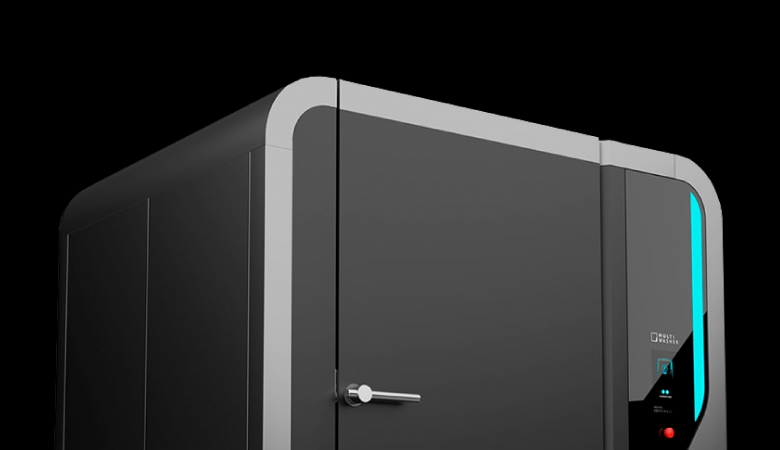
 32 minutos de leitura
32 minutos de leitura
2021-08-10 13:02:05
Industrial washing machines are essential to increase productivity in restaurants, catering, healthcare, and retail establishments. Meeting the specific needs of these sectors requires washing equipment capable of washing large volumes of utensils in a fast, safe, and sustainable way. These are the key advantages of industrial washing machines, how to choose one, and the technologies revolutionizing the field.
What are industrial washing machines?
Industrial washing machines are developed for use in hotels, factories, hospitals, restaurants and other places where there is a great need for rigorous sanitization. They have special features and functionalities for efficiently washing large volumes of utensils such as containers, trays, instruments, tools, components and other items. For this reason, they have a solid and robust construction to withstand the wear and tear caused by constant use.
The main advantage of industrial washing machines is their ability to drastically reduce the time and effort required to wash and dry large volumes of items. This allows employees to focus on value-added tasks, rather than spending time on manual washing work. As well as saving time and effort, these machines minimize the likelihood of failures or incomplete washings – a common issue with manual processes.
What are the features of industrial washing machines?
These are the most common features of industrial washing machines.
High load capacity
Industrial washing machines are designed to sanitize large quantities of utensils at once, which means they can wash a higher volume of items in fewer cycles.
Specialized Wash Cycles
Industrial washing machines can be programmed for specific wash cycles depending on the type of utensils to be sanitized. This feature ensures that utensils are washed according to their nature and specifics, ensuring more effective results.
Automatic dosing system
Some industrial washing machines have an automatic dosing system that measures the exact amount of detergent and other products for each wash. This ensures that only the strictly necessary resources are used, avoiding waste.
Disinfection systems
Disinfection systems can be found in some industrial washing machines that use specific disinfectants to eliminate bacteria and other microorganisms that can be harmful to health. This feature is especially important in sectors such as healthcare or food.
Automatic drying
Some industrial washing machines have a built-in drying feature, such as industrial washing machine and dryer, which means that utensils can be washed and dried in a single operation. As a result, items come out of the machine ready to use.
Energy-saving mode
The most advanced industrial washing machines have energy-saving features, such as sensors that detect the number of items in the machine and adjust water and energy consumption accordingly. This reduces operating costs and makes the process more environmentally friendly.
Water recovery systems
The latest machines have water recovery systems that filter and reuse residual water from the wash in future cycles. This reduces water consumption and waste.
Remote programming
Some industrial washing machines can be programmed remotely via a centralized management system. This feature allows users to monitor and control the wash without being physically near the machine.
Maintenance Features
The latest industrial washing machines have maintenance features, such as service alerts and diagnostics, that help users identify and correct problems before they become serious and force the machine to stop.
What are the advantages of industrial washing machines?
Increased washing quality, productivity, sustainability, cost reduction, time savings, increased safety, and compliance with legislation - industrial washing machines have several key benefits worth exploring.
1. The industrial washing machine ensures compliance with legislation, in every wash
Every food business is obliged to comply with country-specific food regulations. With an industrial washing machine, companies ensure that all utensils and equipment are sanitized and dried properly, within the legally required sanitation parameters:
- Preparation – equipment that will be needed for cleaning and production actions must be disassembled to ensure that it is properly sanitized.
- Dry cleaning – refers to the manual removal of any larger waste, usually with the help of brushes or other utensils. This practice prevents large particles from contaminating the water used in the washing process, as well as potential problems such as clogged pipes or wet solid waste handling.
- Pre-rinse – the surface of the objects should be pre-rinse with cold water at low pressure to remove residues that are loosely adhered to the surface.
- Cleaning – the stage when moistening occurs and the cleaning agents penetrate the equipment and surfaces, as well as the dirt itself. The efficiency of the cleaning process depends on the contact time, temperature, type of dirt and quantity of water.
- Rinsing – after the cleaning stage, rinsing ensures the removal of cleaning residues and dirt, again using water.
- Disinfection – after the surfaces are clean, it is time to disinfect the equipment and surfaces, which is only possible when the detergent is removed completely. This is the last step, which kills off microorganisms that can be harmful and contaminants to the environment, surfaces, hands, and food.
2. Using an industrial washing machine contributes to food safety
An industrial washing machine combines biodegradable detergents with water at high temperatures (over 65°C) to remove grease residues, dirt, germs, and bacteria. In this way, it contributes to greater food safety compared to traditional manual processes.
3. An industrial washing machine saves water, energy, and detergent
Unlike manual wash, an industrial washing machine can control the amount of water, detergent, and energy required for each wash cycle. As a result, modern, energy-controlled smart washing machines, such as the MultiWasher, consume 2/3 less water and use 70% less detergent than the traditional washing process.
4. Washing automation frees people for value-added tasks
Another benefit associated with the industrial washing machine is its efficiency. The level of automation of state-of-the-art washing equipment means that large quantities of utensils (dishes, tools, trays) can be sanitized in a short period. Automation frees up employees to focus on other higher value-added tasks.
5. Following optimal washing parameters increases utensils’ lifecycle
When washing follows optimal parameters of temperature, water, duration, and speed, it can add to the durability of objects. The chemical effect of the detergents, the force applied and the duration of the process - these are all factors in the lifecycle of crockery and tools.
What types of industrial washing machines are there?
There are several types of industrial washing machines, each designed to meet the specific needs of different types of commercial and industrial facilities.
Industrial high-pressure washing machines
These machines use high-pressure water jets. They are generally used in industrial facilities, such as factories and workshops, to clean parts, tools, and equipment.
Industrial immersion washing machines
This type of machine uses immersion recipients to wash parts and equipment. They are also commonly used in workshops, factories, and other places where parts need to be thoroughly sanitized.
Industrial tunnel washing machines
These machines are used to wash large volumes of work pieces and equipment. The pieces are fed into one end of the machine and passed through a series of washing stages before being discharged at the other end.
Closed Cabin Industrial Washers
Closed cabin industrial washing machines are designed to wash industrial parts and components with high efficiency and productivity. As the name suggests, they have a single enclosed area where all the washing steps take place. The process is thus isolated from the external environment, making it safe, controlled, and automated. In addition, they take up less space and a smaller area. It’s the case of the MultiWasher, the latest generation industrial washing machine developed by Somengil, an innovative step in hygienization in industries of several sectors.
How to choose an industrial washing machine?
Performance, consumption, size, capacity - there are many factors to consider when choosing an industrial washing machine.
Size and capacity
Industrial size washing machines are used in commercial and industrial settings where a high-capacity and heavy-duty solution is required. So, industrial size washing machines should be adapted to the space available and the volume of utensils that need to be washed daily. The choice will be different for each specific case, but these are some guidelines for each type of business:
- For small establishments, restaurants, and cafes. A standard industrial washing machine with a capacity to wash 35 racks per hour may be enough.
- For food and retail industry. The workload in these industries is much larger in scale, so industrial washing machines should be capable of at least washing about 3,000 dishes per wash.
Temperature
When procuring an industrial washing machine, it is important to consider the temperatures at which utensils will be washed. High temperatures ensure complete sanitation by eliminating organisms. According to food industry’s best practices created by the Portuguese General Directorate of Health, dishes and other utensils should be washed in an industrial washing machine at temperatures ranging from 80 to 90 degrees Celsius.
Water consumption
Water consumption is one of the most important decision factors - both to reduce operating costs and to minimize the environmental footprint of the washing process. Water consumption is measured in gallons of water per wash cycle. On average, industrial washing machines consume about 23 liters of water.
To reduce this figure, look for equipment that can recycle water. With this feature, water from one washing cycle is purified and used for the next cycle. The MultiWasher is equipped with a recycling system which reduces consumption to only 7 liters per cycle, about 70% less than what is offered in the market.
Energy consumption
With electricity accounting for 11% of the industrial energy consumption, it is essential that companies create strategies to save this resource. Choose an energy-efficient washing equipment with several "modes" of operation - eco, smart or low-cost. Selecting a machine with these features can reduce electricity consumption by up to 50%.
Detergent consumption
Besides consciously choosing ecological detergents free of inorganic substances such as phosphate, it is also crucial to select a machine that makes reasonable use of such products. For instance, when the MultiWasher runs a normal washing cycle, it uses 70% less detergent than other industrial washing machines.
Wash quality
Washing quality should be a key criterion in the procurement decision. It can be measured by the amount of light generated by adenosine triphosphate (ATP), an energy source present in animal, plant, bacterial, and fungal cells.
The smaller the amount of light generated by a particular utensil, the cleaner it is. There are reference values for the units of light generated by clean utensils in each industry:
- In the Food area, the maximum is 500 units of light. A result above this limit indicates an unsafe concentration of organisms;
- In the Healthcare sector, requirements are naturally tighter - disinfection of clinical consumables in hospitals requires a maximum of 100 light units (except in operating rooms, where it is even more stringent).
Ergonomics
Prioritize equipment that supports the specific needs of your workflow. It is important to have a fully ergonomic machine with wash carts easy to load and unload, therefore requiring less effort and time spent by employees.
Noise
Noise is another essential factor in an industrial washing machine. In production environments that are naturally noisy, either from handling of kitchen utensils or other machines, it is essential to choose quiet equipment. A high noise level at the workstation reduces concentration, increases anxiety, and can even alter the natural sleep cycle of employees.
Data logging
In a 4.0 world, industrial washing machines should integrate a system capable of recording the washing cycles and parameters used, so that this data can be used to identify patterns and plan future improvements.
Ease of use
Every machine should be intuitive for its operator. Equipment with simple dashboards makes it possible to select pre-recorded programs and schedule washing, disinfection, and decarbonization times that make daily production much faster and more efficient.
Stainless steel washing machine
Industrial washing machines, handling large volumes of items in diverse settings, are exposed to harsh chemicals and detergents. Stainless steel's exceptional corrosion resistance ensures that components are unaffected by these aggressive substances over extended periods, contributing to the longevity of the appliance.
Moreover, washing machines are subjected to heavy loads and frequent use. Stainless steel washing machines are known for its strength and durability, withstanding the rigors of continuous operation and the mechanical stresses associated with large and heavy loads. In addition, stainless steel washing machines can handle high temperatures without compromising its structural integrity.
What is the origin of industrial washing machines?
Every story has a beginning. The story of industrial washing machines began more than 250 years ago. With the industrial revolution, factories of every kind sprang up. But, discreetly and hundreds of kilometers away from the industrial centers of Birmingham and Manchester, a discovery was being made that would change the lives of millions of people all over the world. In quiet, green Ratisbonne, Germany, Jacob Schäffer successfully tested the first washing machine in 1767.
The first step towards the industrial washing machine had been taken. However, it would take almost 100 years for Joel Houghton to create a machine closer to those we know today - a wooden contraption with a crank that sprayed water onto the dishes. It took even longer for Josephine Cochrane to introduce the first truly functional washing machine. An engineer's daughter, she surprised the world with a dishwasher design very similar to the one we know today. Patented in 1886, it had wire shelves to keep kitchen utensils in place.
Since then, several inventors and engineers have worked to reach an efficient industrial washing machine. At Somengil, we continue this legacy of discovery and exploration. We strive to establish strategies to maximize production and minimize the ecological footprint of the machines.
What kind of companies are industrial washing machines meant for?
Industrial washing machines are ideal for any company or facility that needs to sanitize large volumes of utensils or equipment to ensure perfect washing results, reduce labor costs, and improve efficiency. But some fields stand out.
Food processing companies
Industrial washing machines are especially suitable for large-scale food processing companies such as bakeries, dairies, and meat processing companies. In addition, restaurants, fast food chains, and catering facilities use industrial washing machines to sanitize large volumes of kitchen utensils, food processing equipment, and other food-contact surfaces. In this case, ensuring perfect washing is essential for compliance with hygiene and food safety legislation.
Medical facilities
Medical facilities such as hospitals, clinics, and laboratories also benefit from the use of industrial washing machines. Such equipment is especially useful for sanitizing surgical instruments, medical devices, and other tools that come in direct contact with patients. High washing temperatures and specific programs for different types of medical equipment are vital in these cases. Thus, these machines help reduce the risk of hospital-acquired infections and ensure that patients receive the best possible care. On the other hand, they free up healthcare professionals to concentrate on higher value-added tasks.
What technologies go into industrial washing machines?
Technology is elevating the performance of industrial washing machines. These are some of the key innovations that go into the latest industrial washing machines, such as the Multiwasher.
Internet of Things (IoT)
Internet of Things (IoT) allows devices and objects in the physical world to connect and communicate with the Internet, powering data collection and process automation. This technology is also being used in industrial washing machines to improve the efficiency and performance of operations.
We equip our leading industrial washing machines with IoT sensors and devices connected to the Internet, which analyze real-time data on machine operation, such as temperature, pressure, water, and energy consumption, and enable the detection of failures and anomalies automatically. Thus, it is possible to perform preventive maintenance and reduce unplanned downtime, reducing costs, and increasing operational efficiency.
Water filtration
The quality of the water used in the washing process is a critical factor for washing efficiency and machine durability. Today, technology allows industrial washing machines to use adequate water, even from previous wash cycles, properly filtered from components and impurities such as sand, sludge, chlorine and sediments.
Machines that do not have adequate water filtration systems have lower performance and a reduced service life, as impurities in the water build up in the machine, damaging components and causing malfunctions.
Automatic Controls
Some industrial washing machines are equipped with controls for washing time, temperature, and detergent. They can also automatically calculate the number of resources needed according to the type of utensils to be sanitized, ensuring the correct use of resources and promoting savings in water, energy, detergent, and time.
These are just some of the technologies that help to ensure an unprecedented level of efficiency, both in washing and in sustainability.
Industrial washing machine: price
The price of an industrial washing machine can vary significantly based on several factors, including the capacity, features, and technology. These are the main factors that influence the price:
- Larger capacity machines will generally have a higher price tag.
- Advanced features, such as programmable controls, multiple wash cycles, energy-efficient options, and smart technology can contribute to a higher price. High-tech features designed for water and energy efficiency may also impact cost.
- Energy-efficient models may cost more upfront but save on operational costs in the long run. It is important to look for machines with high energy and water efficiency ratings.
- The build quality of the machine, including the materials used and the construction, can influence the price. Industrial machines built with robust materials are likely to have a higher upfront cost but may offer better durability.
- Some industrial washing machines offer customization options to meet specific industry needs. Custom features or modifications can affect the overall cost.
4 trends that are changing industrial washing machines
The industrial washing market is predicted to grow globally by 5% between 2021 and 2025. These are the main trends.
Sustainability
Environmental awareness has been heightened by the pandemic and extends to almost every area of society, including industrial washing machines. New machines must be able to wash utensils with the smallest possible ecological footprint. MutiWasher, the machine developed by Somengil, uses 2/3 less water than hand washing. In addition, it allows smart consumption, using less energy and detergent.
Automation
Automation applied to industrial washing machines is another major trend for the coming years. Examples including scheduling software, as well as pre-programmed washing cycles configured according to the type of material, weight, or duration of the wash.
Internet of Things
Industrial washing machines are becoming increasingly intelligent, a trend widely expected to continue. With IoT (Internet of Things), it will be possible to collect data on the use of utensils and tools to find the best washing parameters (cycle time, temperature, amount of detergent, etc.) automatically. Internet of Things is expected to make industrial washing machines more efficient and autonomous.
Eco-Friendly Detergents
One of the latest trends associated with industrial washing machines is the transformation of the products used in the washing systems. Chemical-free, biodegradable elements are increasingly valuable, as are those that do not contain optical brighteners or artificial colors or fragrances.
How industrial washing machines work
Industrial washing machines simplify every stage of the washing process.
1. Loading
The first step in the process is loading the items to be washed. In industrial washing machines, this step is facilitated by large, easy-to-open access doors, allowing great quantities of utensils and equipment to be loaded in at once. With the MultiWasher, staff can load entire trolleys at once, which facilitates movement.
2. Selecting the program
After loading, the operator selects the appropriate washing program. Modern industrial washing machines, such as the MultiWasher, offer a variety of pre-set programs adapted to different types of dirt and materials. For example, you can choose specific programs to remove grease, clean delicate utensils or disinfect medical instruments.
3. Washing
At this stage, the hot water, jet pressure and detergent work together to wash in depth. The rotating movements ensure that the detergent penetrates all areas of the items, removing dirt, grease and other residues. The high water temperature removes the toughest dirt and disinfects.
4. Rinsing
After washing, the items are rinsed with clean water to remove any detergent residue. This step prepares items for drying, ensuring that no stains or residue remain.
5. Drying
Finally, the utensils go through the drying phase. Industrial washing machines incorporate hot air methods with high-speed fans. With the MultiWasher, items come out of the machine completely dry and ready for immediate use. Efficient drying is particularly important to prevent the proliferation of bacteria and the formation of water stains.
7. Unloading
Once the drying cycle is complete, the items are ready to be unloaded. Easy-access doors facilitate the process of removing items from the machine. Utensils, trays, tools and other equipment leave the machine clean, disinfected, dry and ready for use or storage.
3 real-life applications for industrial washing machines
These three examples illustrate the versatility and impact of industrial washing machines in different sectors.
1. Sonae: sustainable transformation in retail
Sonae, a multinational group present in 90 countries and with more than 100 stores in Portugal, chose MultiWasher to increase the efficiency of its operations and save resources such as water and energy. With the MultiWasher, Sonae cut the time spent washing utensils and tools by 74%, reduced harmful body postures by 60%, the risk of cuts by 40%, water consumption by 76% and detergent use by 19%.
2. Bimbo: savings in the food sector
Bimbo, one of the largest food companies in the world, used to rely on washing tunnels to sanitize plastic boxes, which led to high water and energy consumption. By switching to the MultiWasher, they reduced water consumption by 85% and energy consumption by 70%.
3. Ibisma, greater efficiency in the meat industry
Ibisma S.L., a producer of Iberian sausages, chose MultiWasher for its combination of efficiency, speed and, above all, reliability and washing quality. They faced high consumption of water and materials to wash cutter trolleys, stainless steel tubs and plastic pallets was high, as well as a time-consuming manual process. An employee would spend between 45 and 50 minutes washing each item. With MultiWasher, that same task is completed in just 5 to 10 minutes.
Industrial washing machines: frequently asked questions
We answer some of the most common questions about industrial washing machines.
How does MultiWasher improve operational efficiency?
MultiWasher reduces the time needed to wash and dry utensils, allowing employees to focus on more complex tasks. Companies can achieve savings of 74% on washing time alone. MultiWasher contributes to sustainability by saving up to 76% of water and 19% of detergent, thus reducing the consumption of natural resources and environmental impact.
What are the space requirements for installing the MultiWasher?
The MultiWasher is available in different sizes, so it can be adapted to various spaces. We can help you determine the best configuration for the available space. It can also be customized to make the most of the layout.
Is the MultiWasher safe?
Yes, using the MultiWasher significantly reduces the risks associated with manual labour, such as repetitive motion injuries and cuts, and increases employee safety.
Does the MultiWasher require special training for operators?
The MultiWasher is easy to use and Somengil provides initial training for operators to ensure that the machine is used correctly and efficiently from day one.
What types of utensils and tools can be washed in the MultiWasher?
The MultiWasher can wash a wide range of items, including trays, plastic boxes, molds, trays, containers, pallets, forklifts, trolleys, among many others - from small items to larger utensils.
Can MultiWasher monitor resource consumption?
Yes, MultiWasher allows you to export daily reports that include the number of uses and the consumption of water, detergent and energy, for efficient resource management. Where can I see MultiWasher in action? You can contact us to schedule a demonstration of MultiWasher and see for yourself its impact on sanitizing efficiency and resource management in your business.
MultiWasher, next generation industrial washing machine
At Somengil, we work every day to design the most efficient washing solutions on the market. The result of years of dedication is the MultiWasher, a state-of-the-art industrial washing equipment that meets the requirements of the most demanding professionals and improves the washing processes of the retail, food, and catering industries. Schedule a webinar and find out how it works.
Também pode gostar

Lavagem Industrial / ArtigosArtigos
Sustainable packaging: 5 steps to make the switch
Plastic production is on the rise despite increasing environmental concerns. These are 5 key steps to make the switch to sustainable packaging.
Postado em 2022-07-14
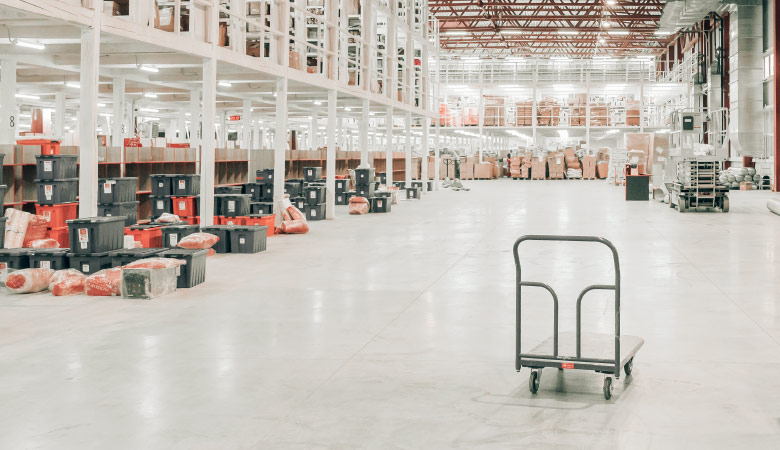
Lavagem Industrial / ArtigosArtigos
Moving on: how to pick transport trolleys for the food industry
Moving loads quickly and safely is no small feat. This is how to choose transport trolleys that take a load off heavy duty logistics tasks.
Postado em 2022-07-28

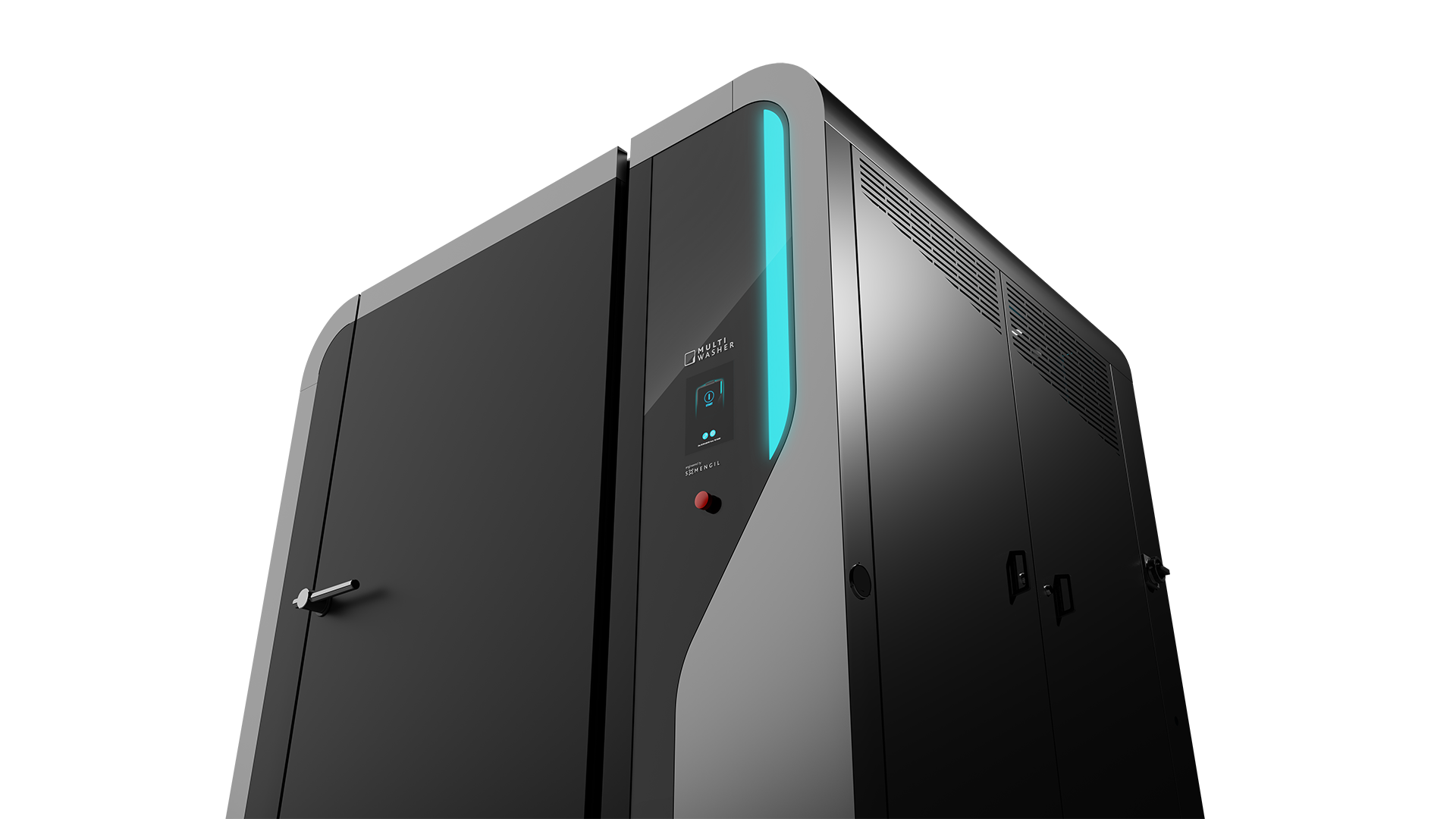
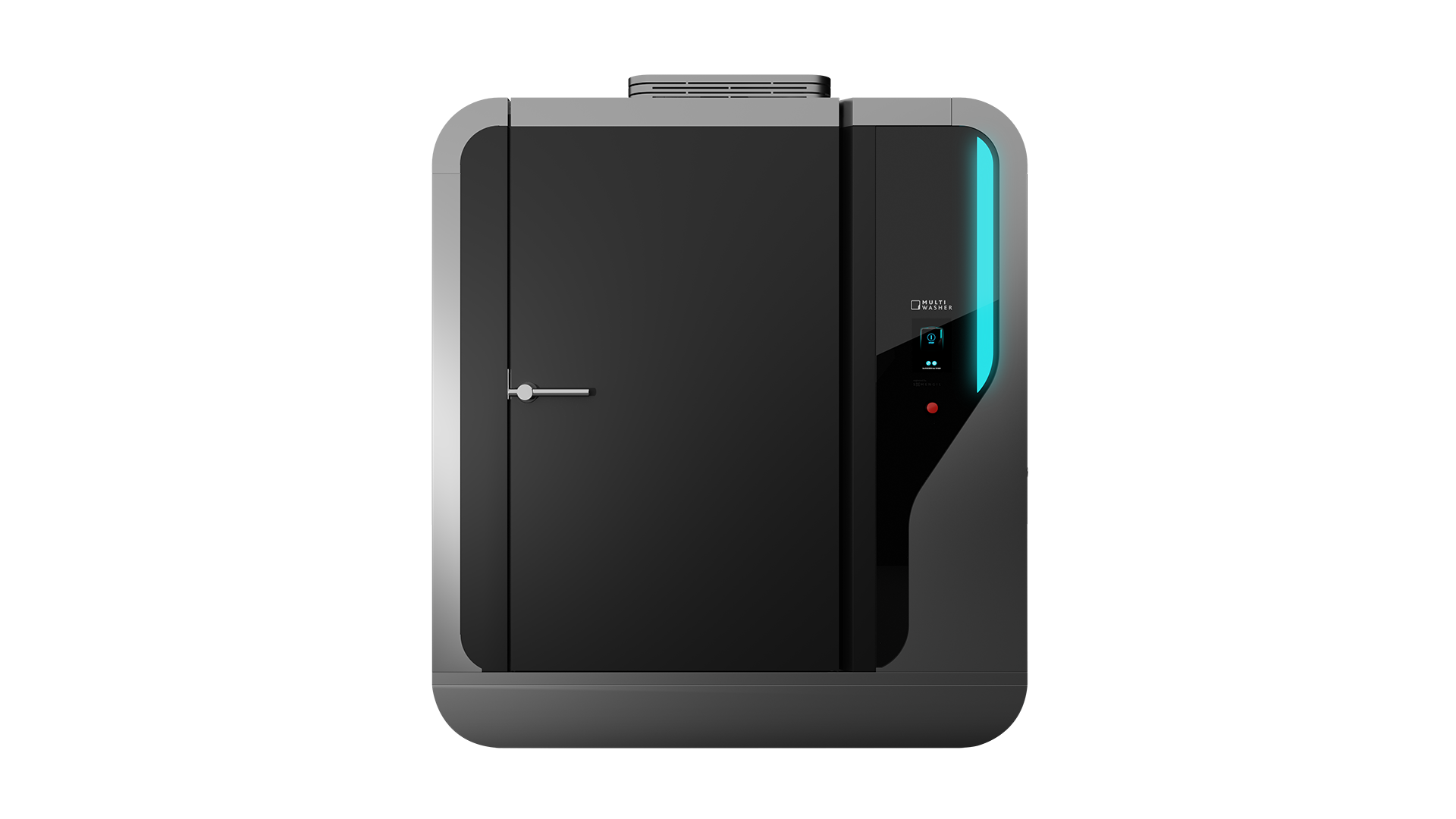
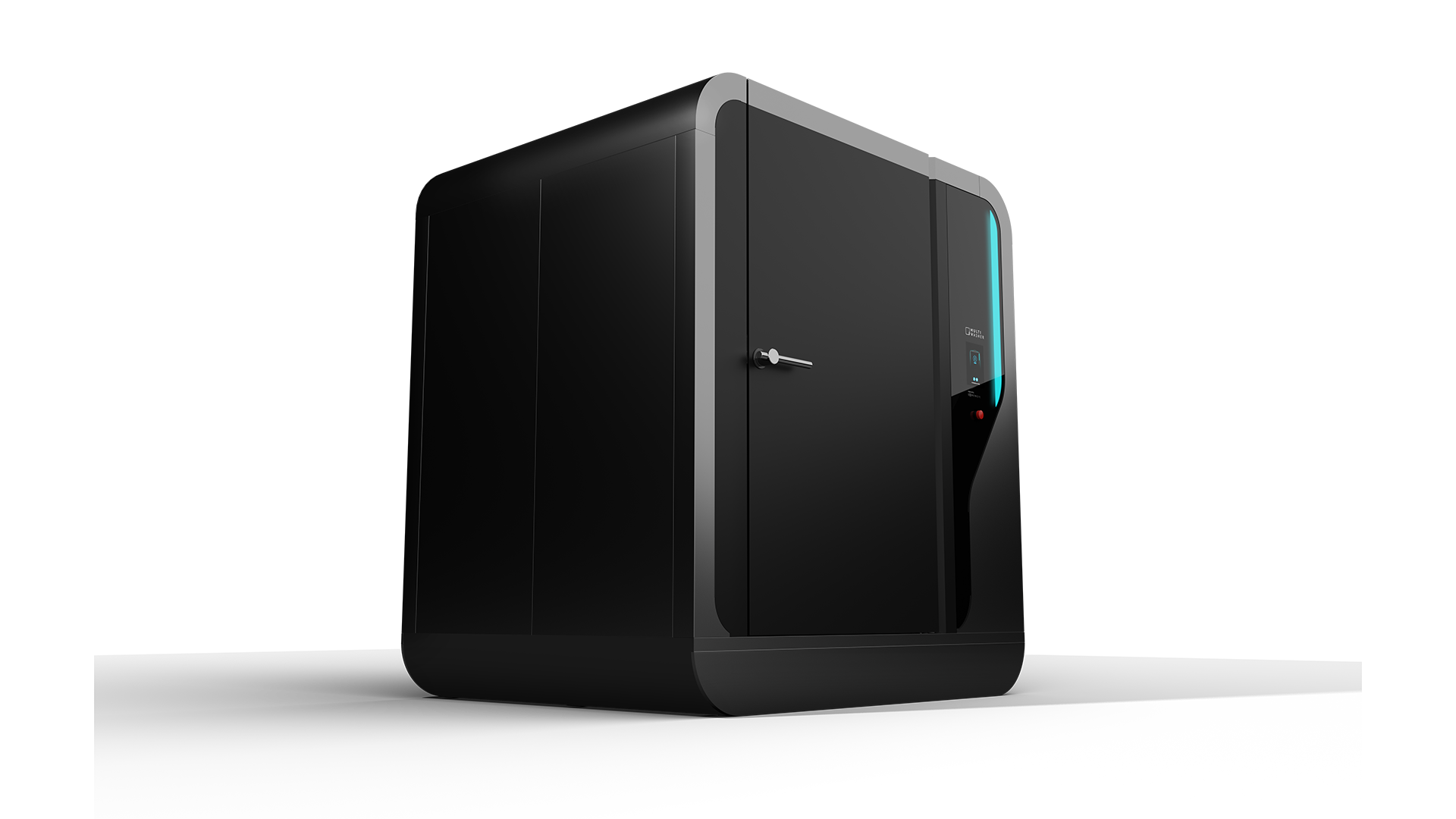
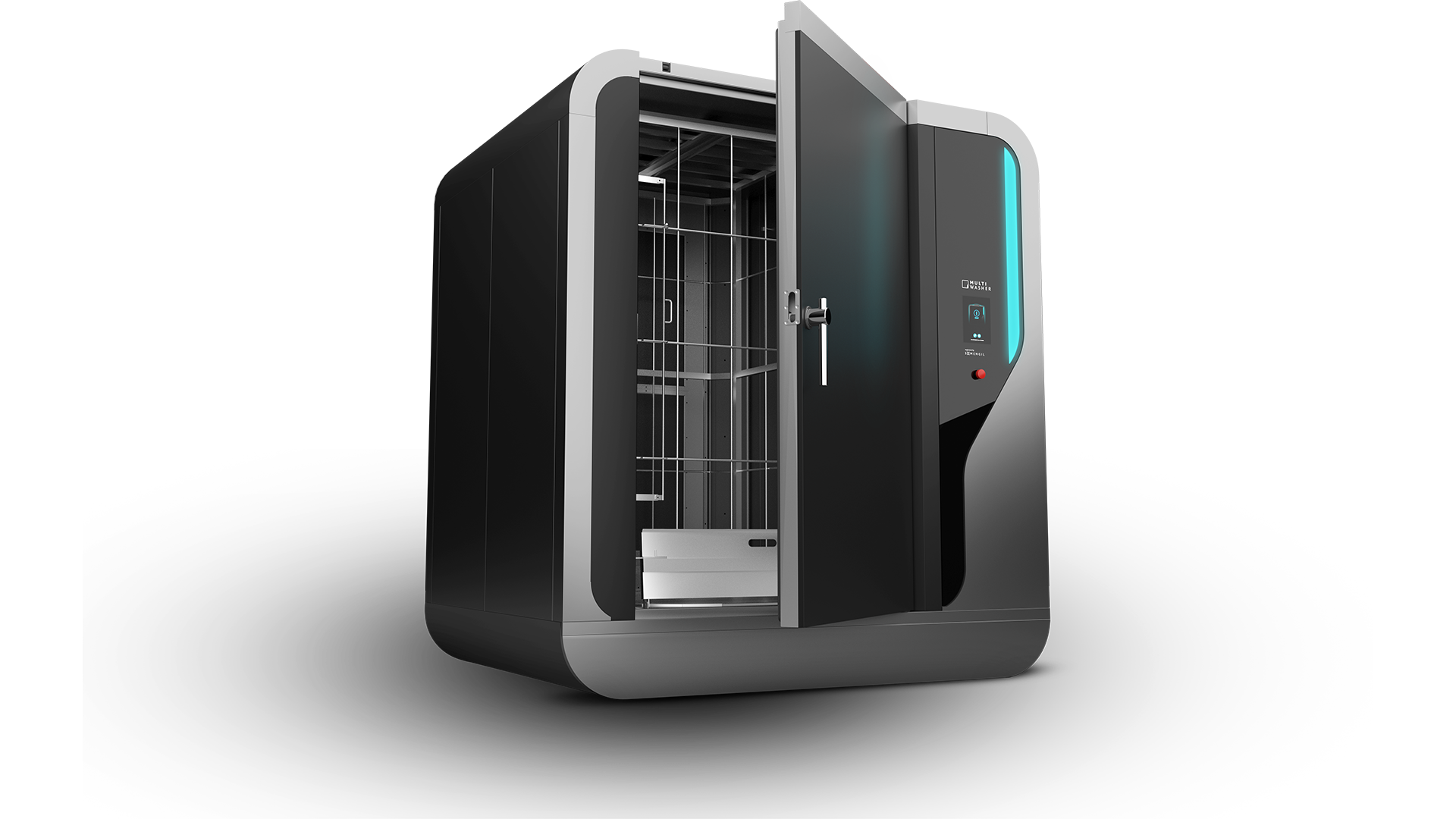
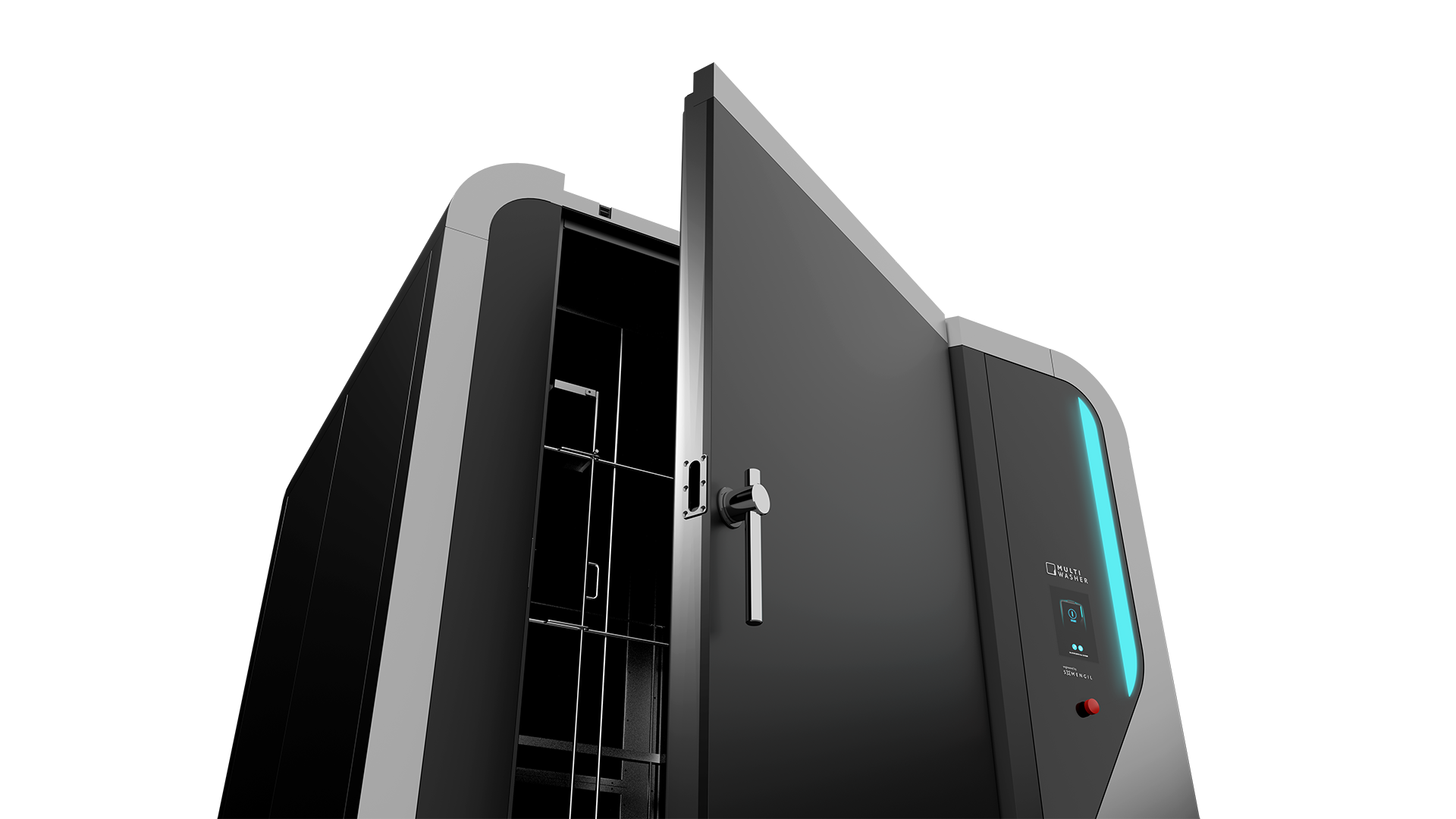
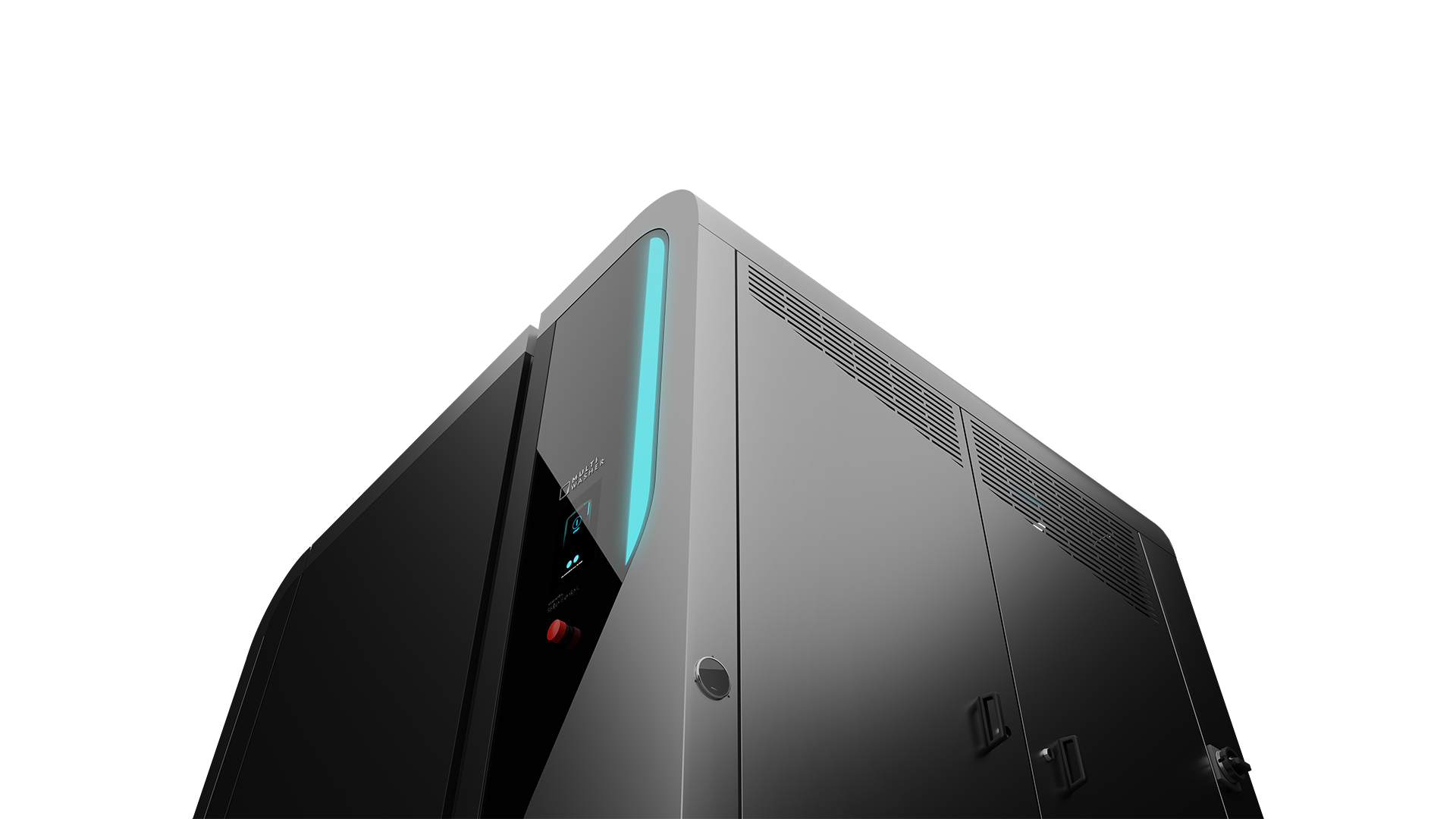

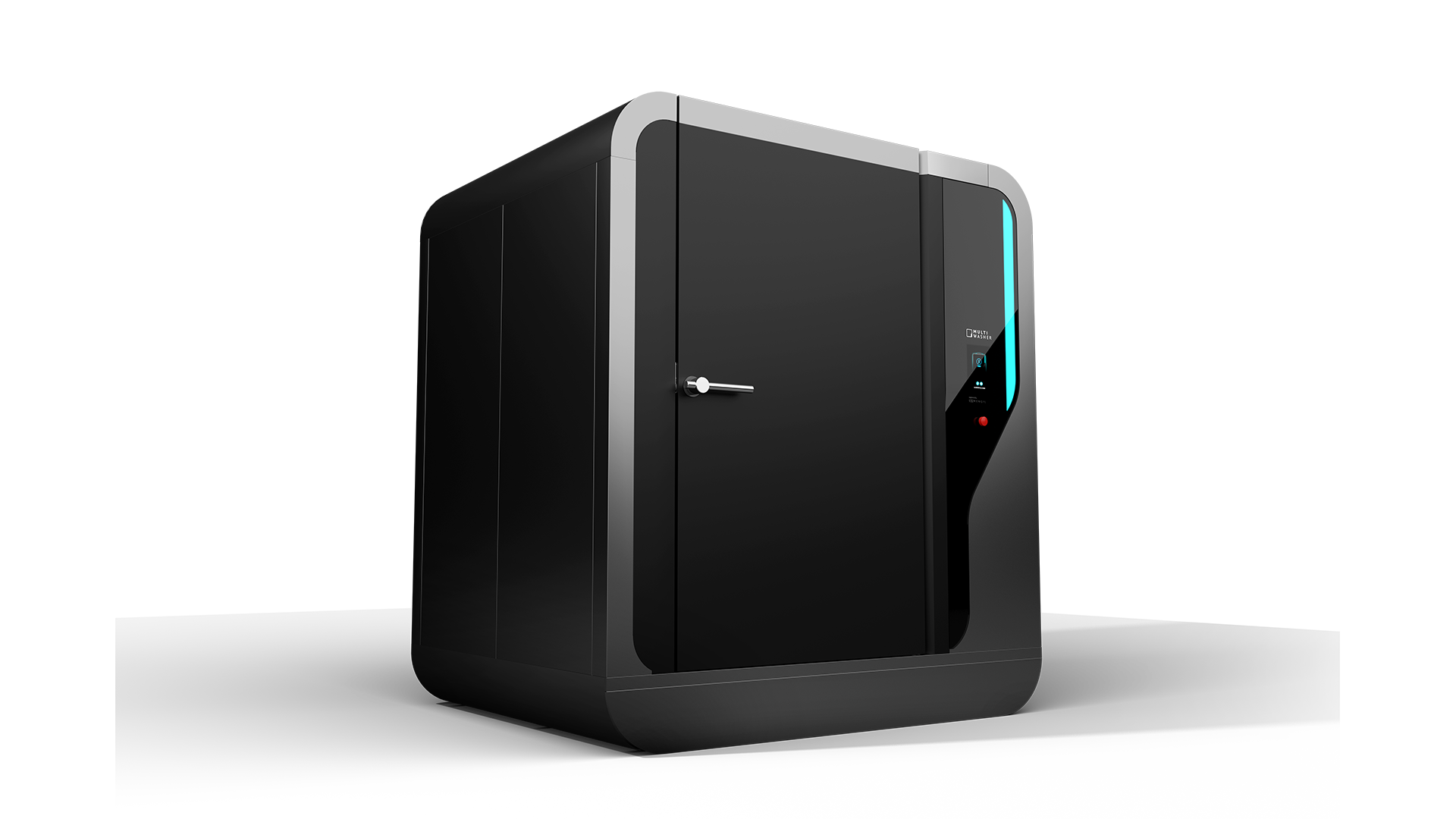
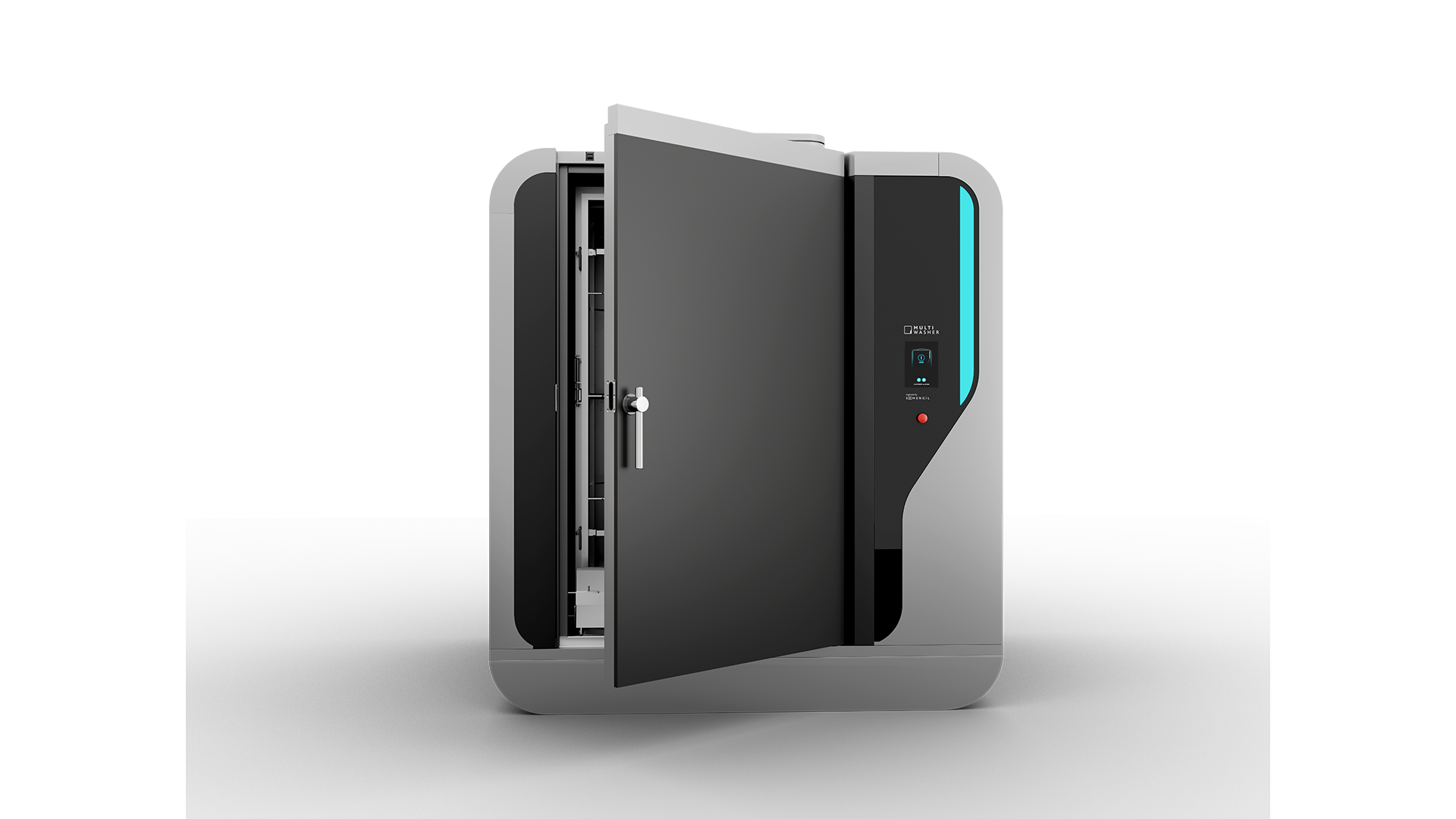
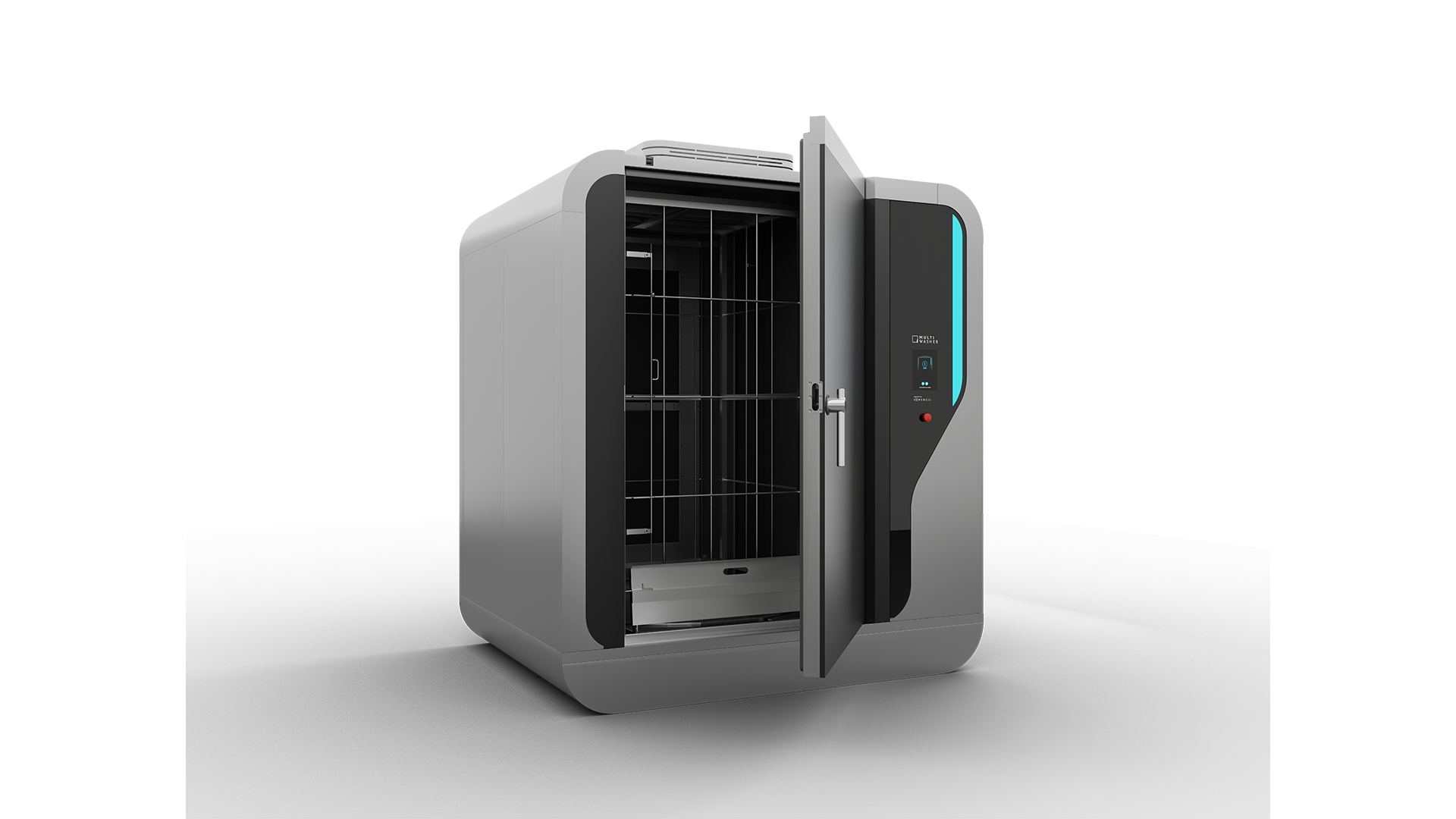
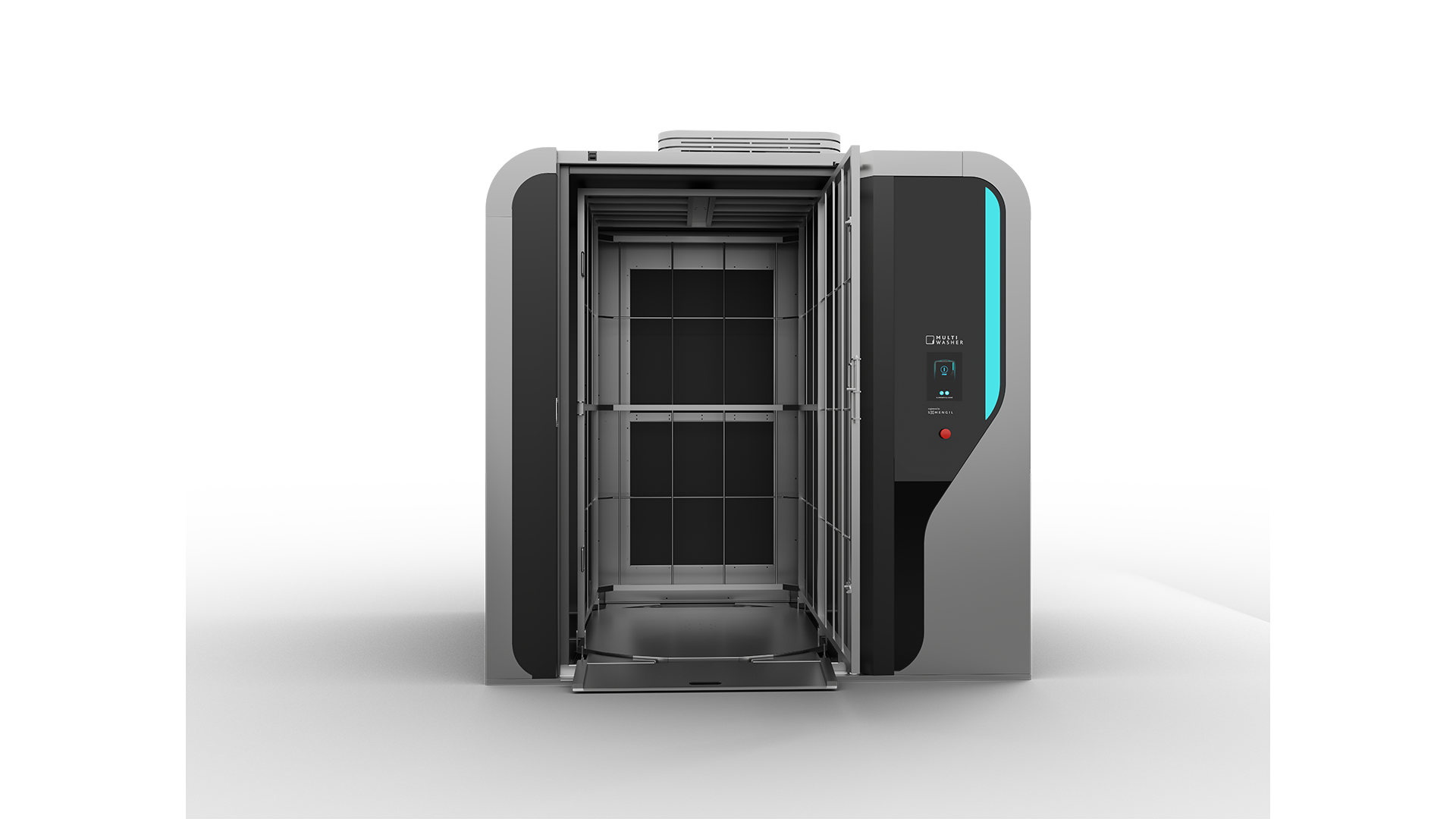
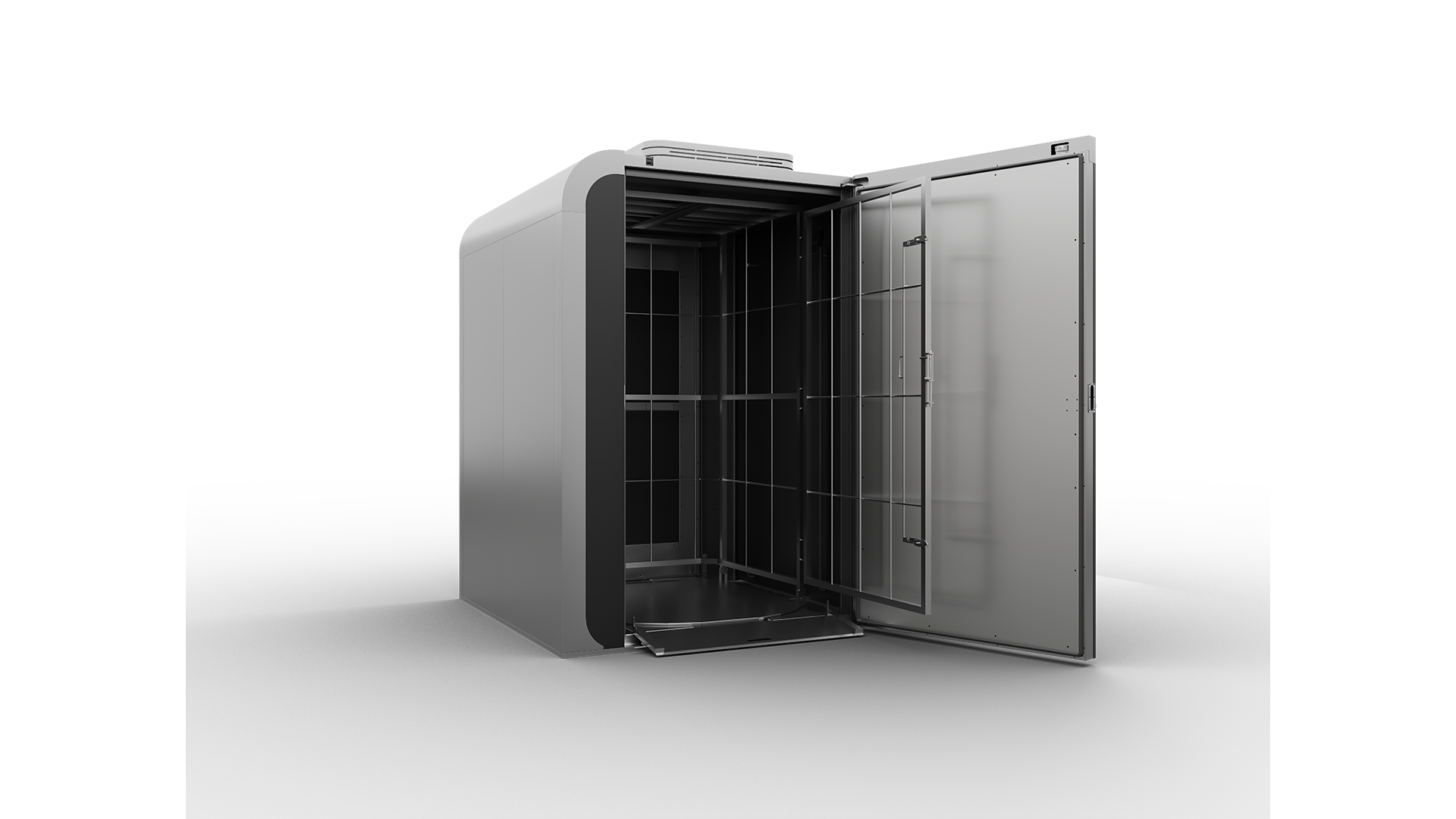
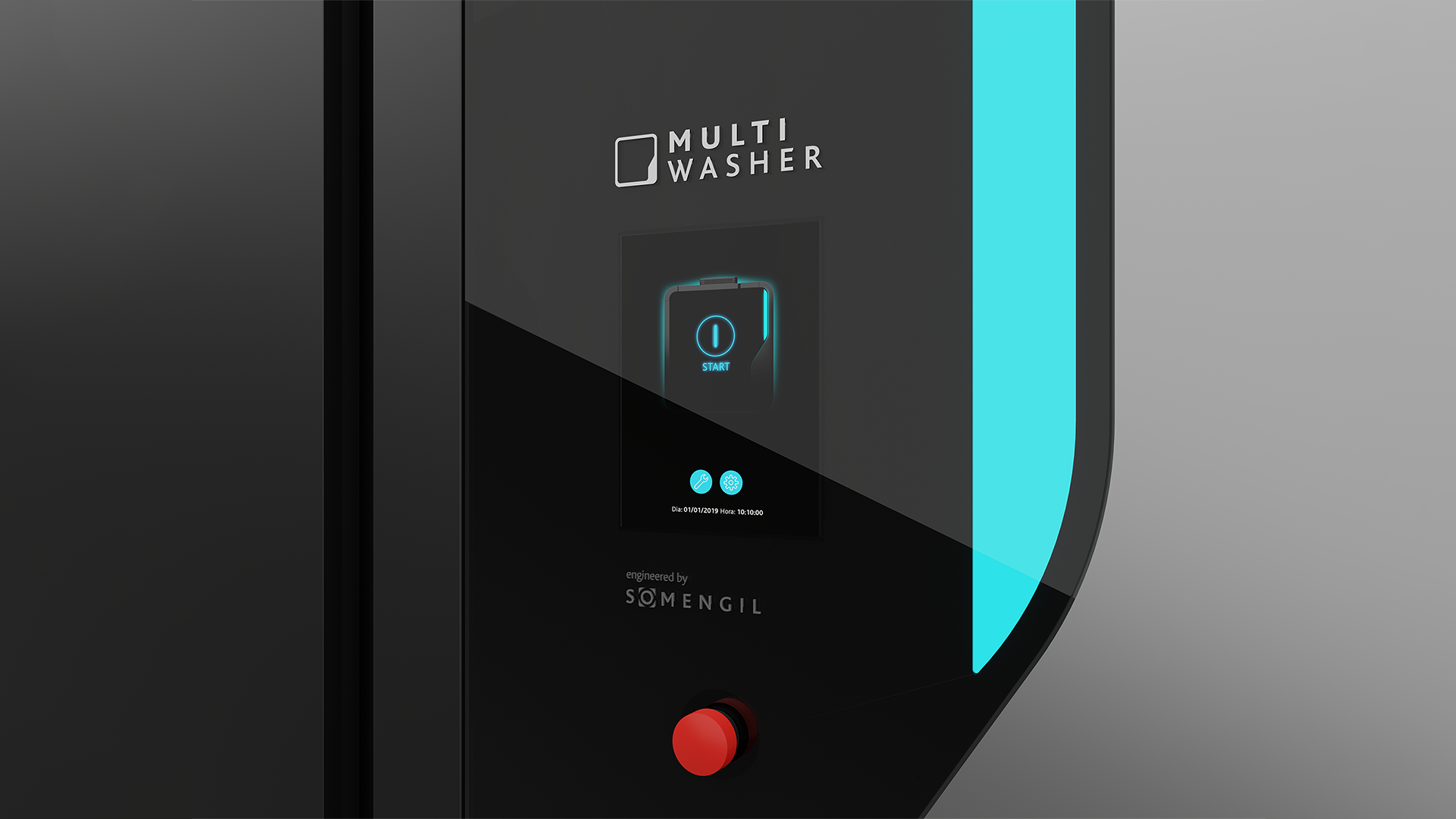
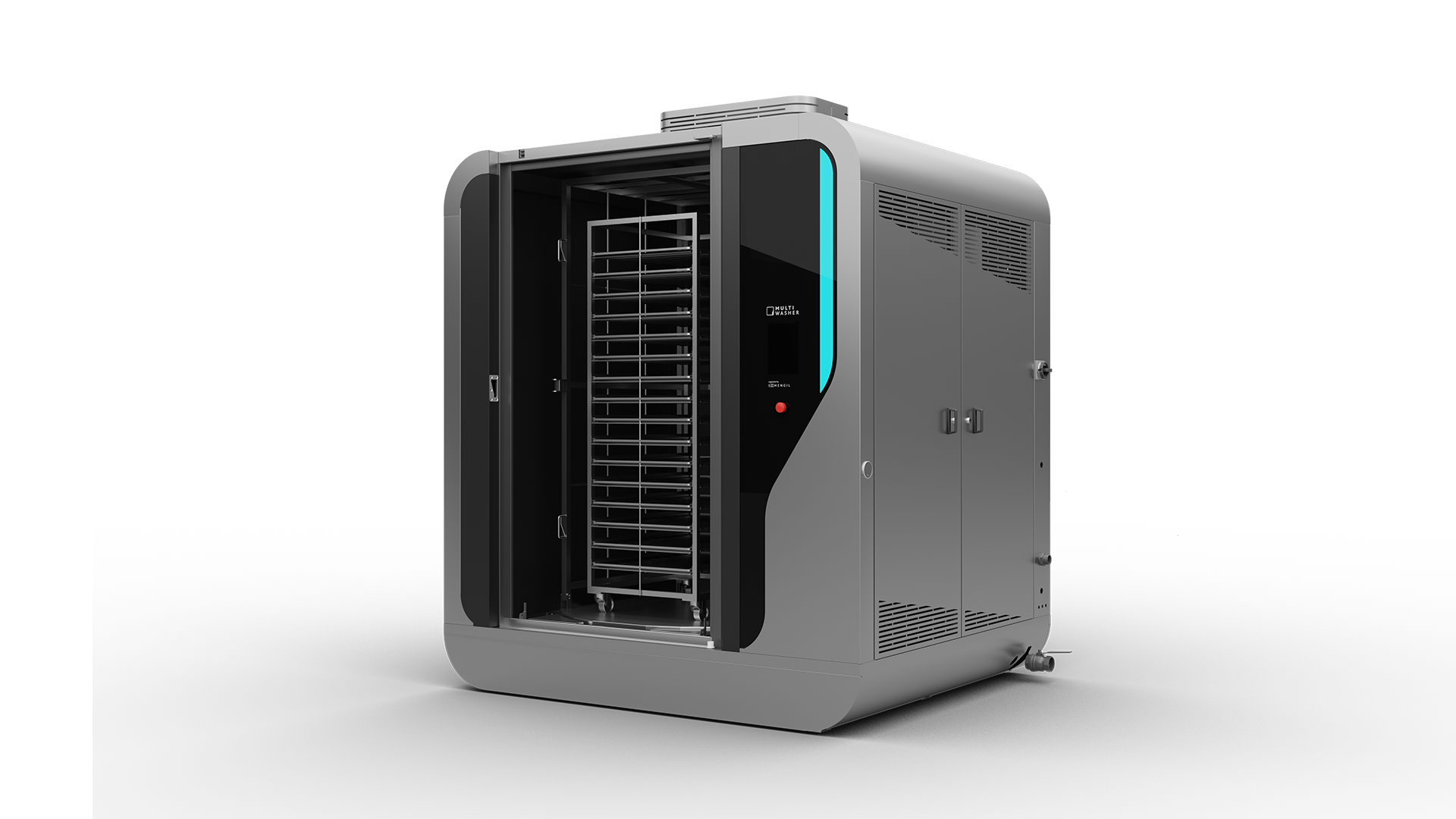
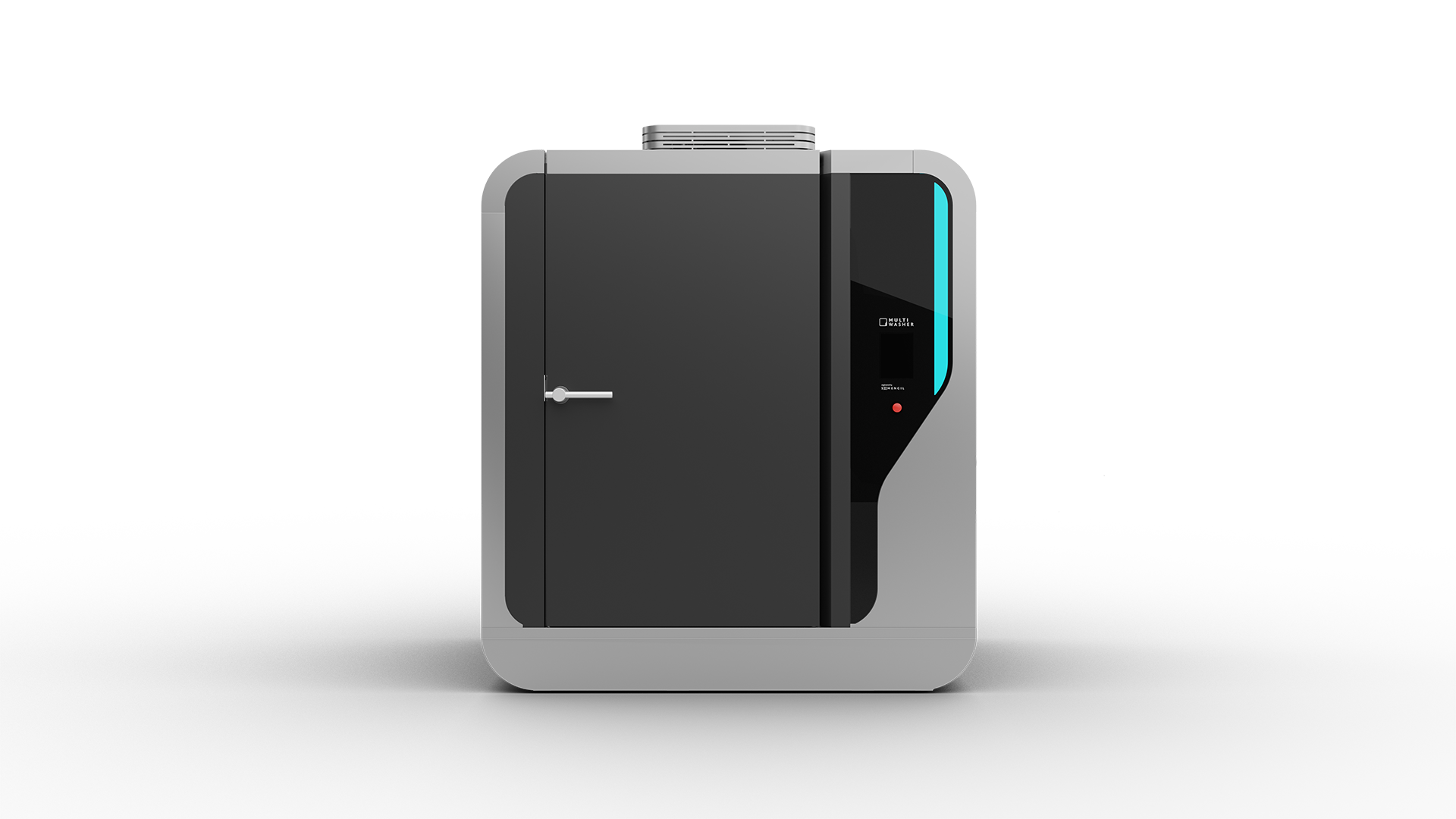
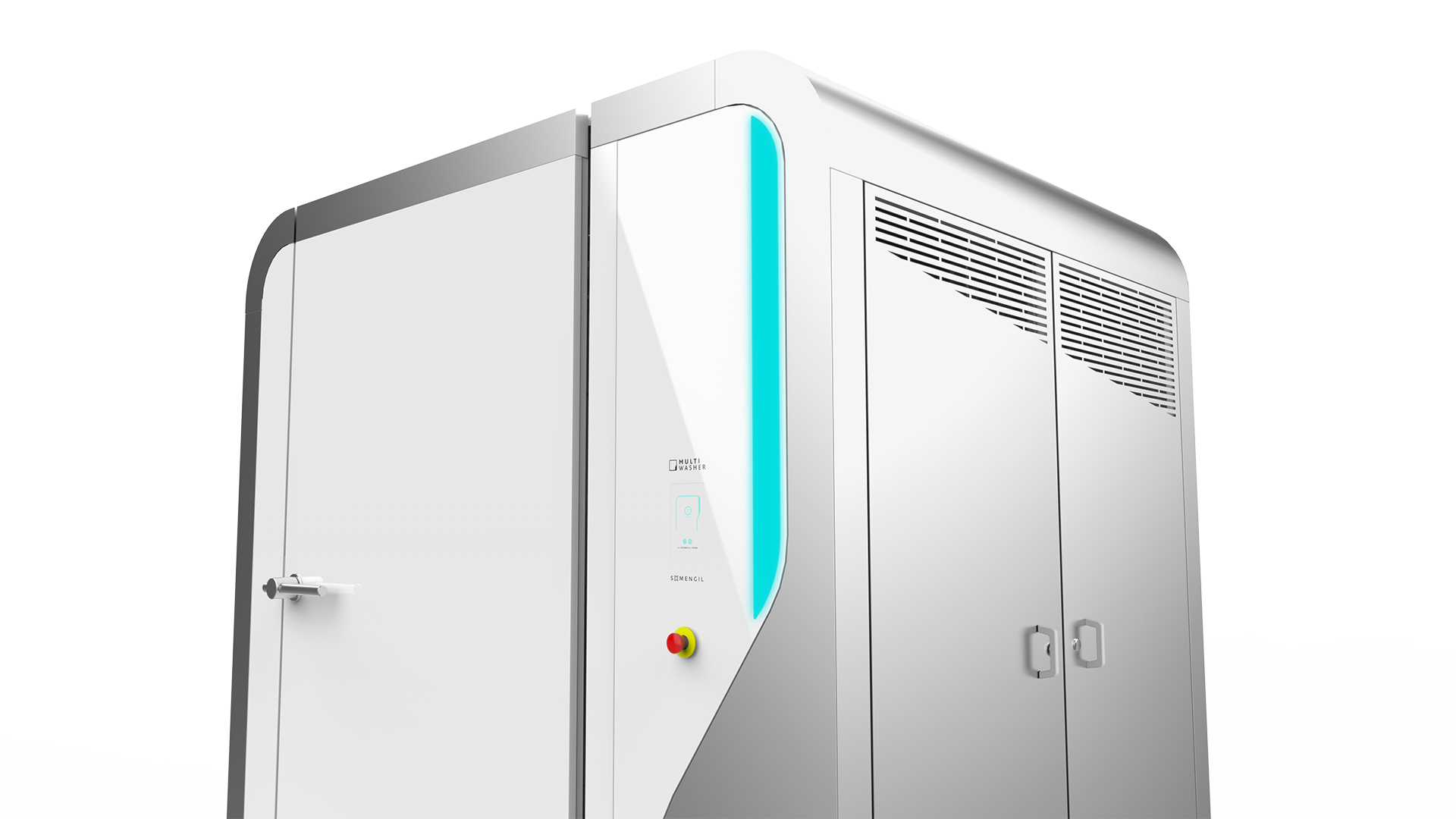

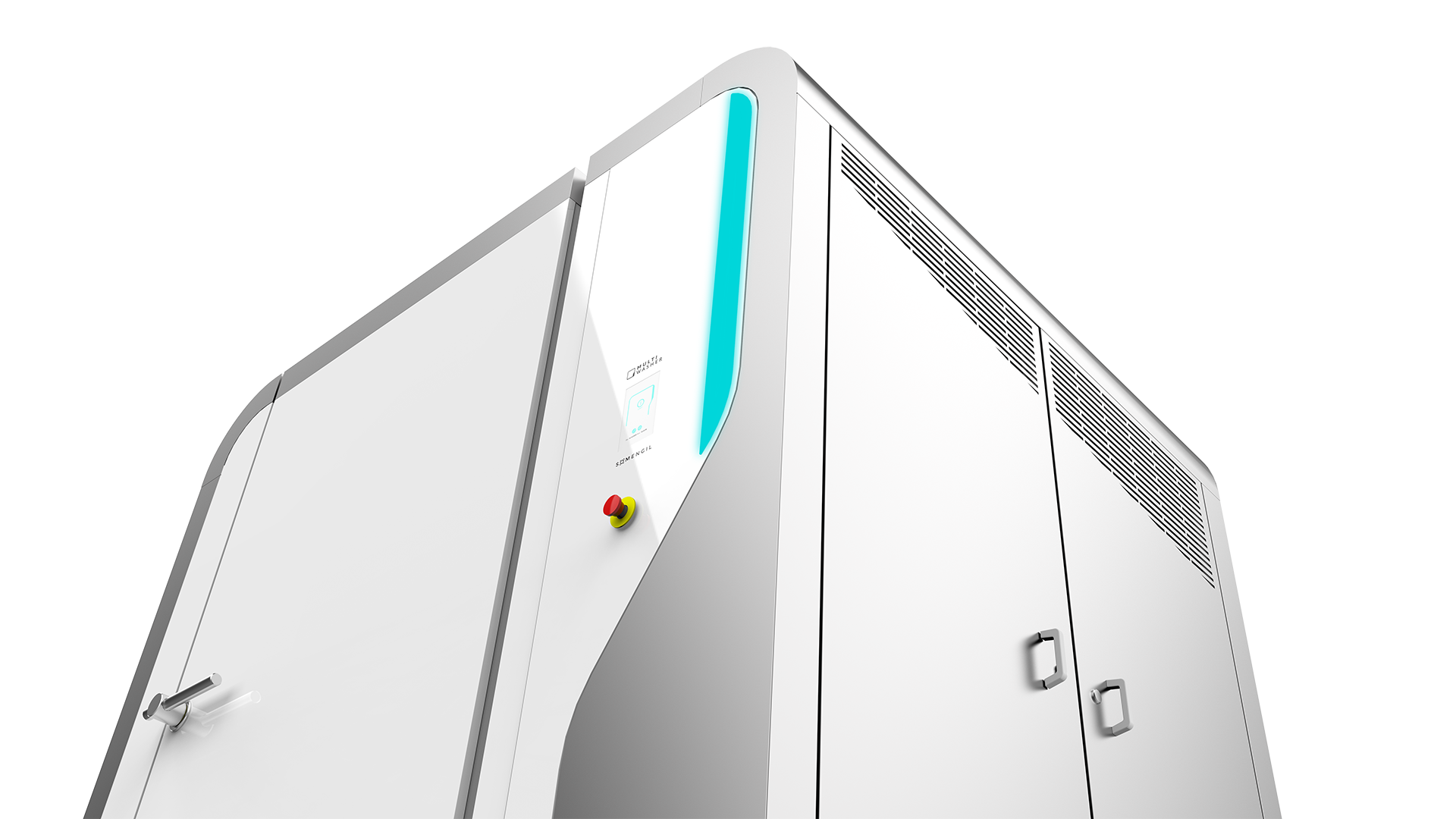
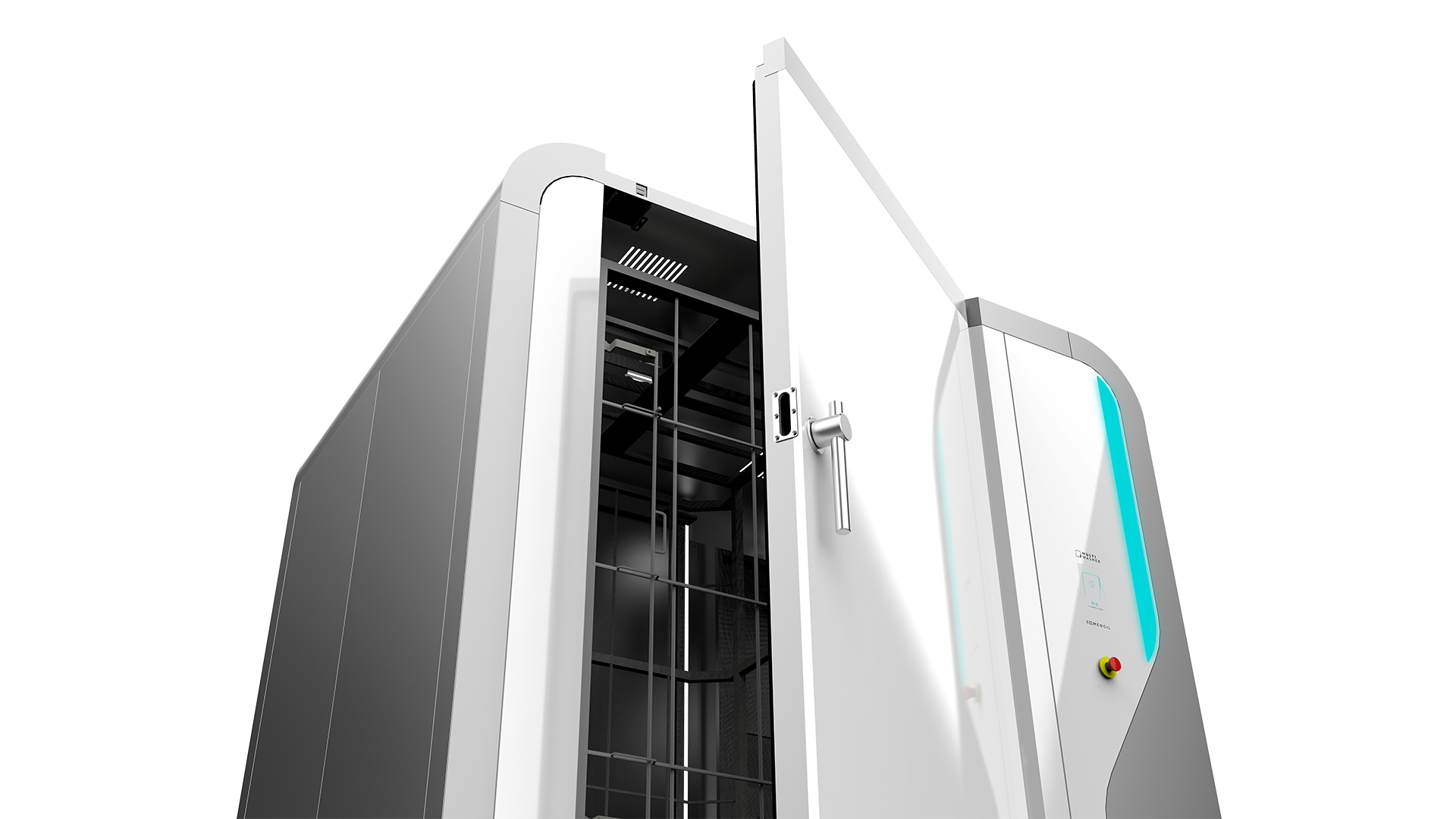
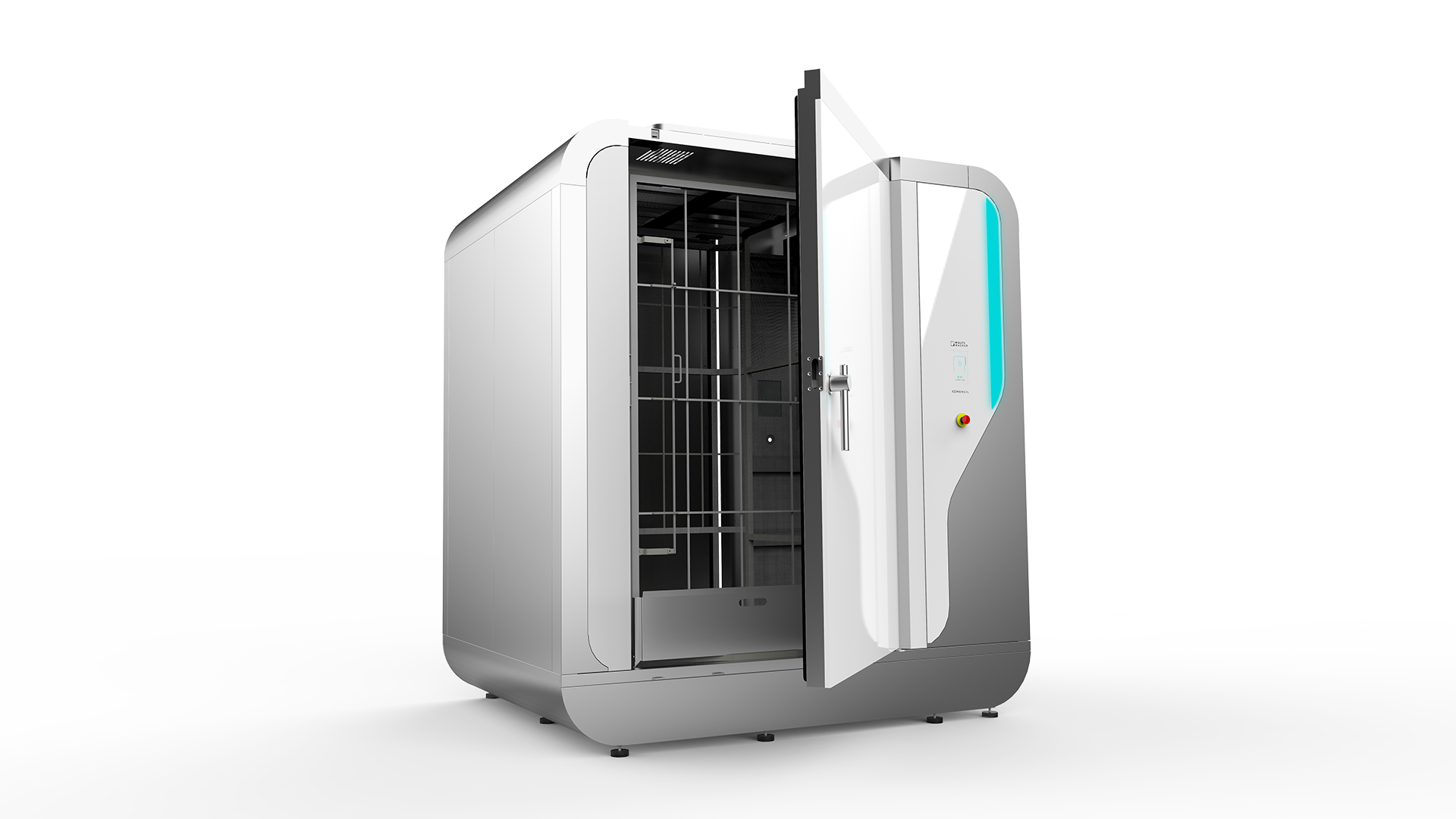
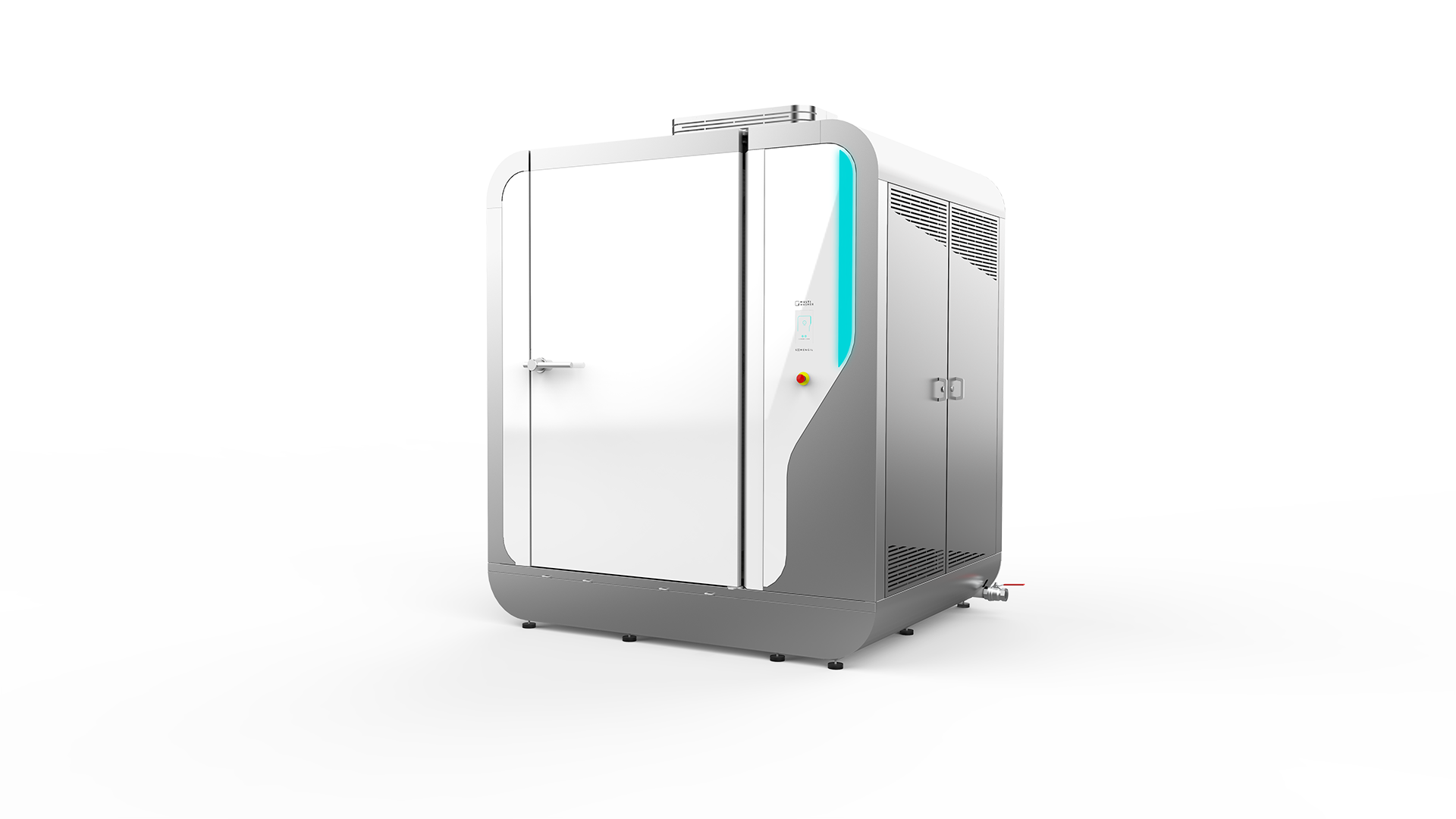
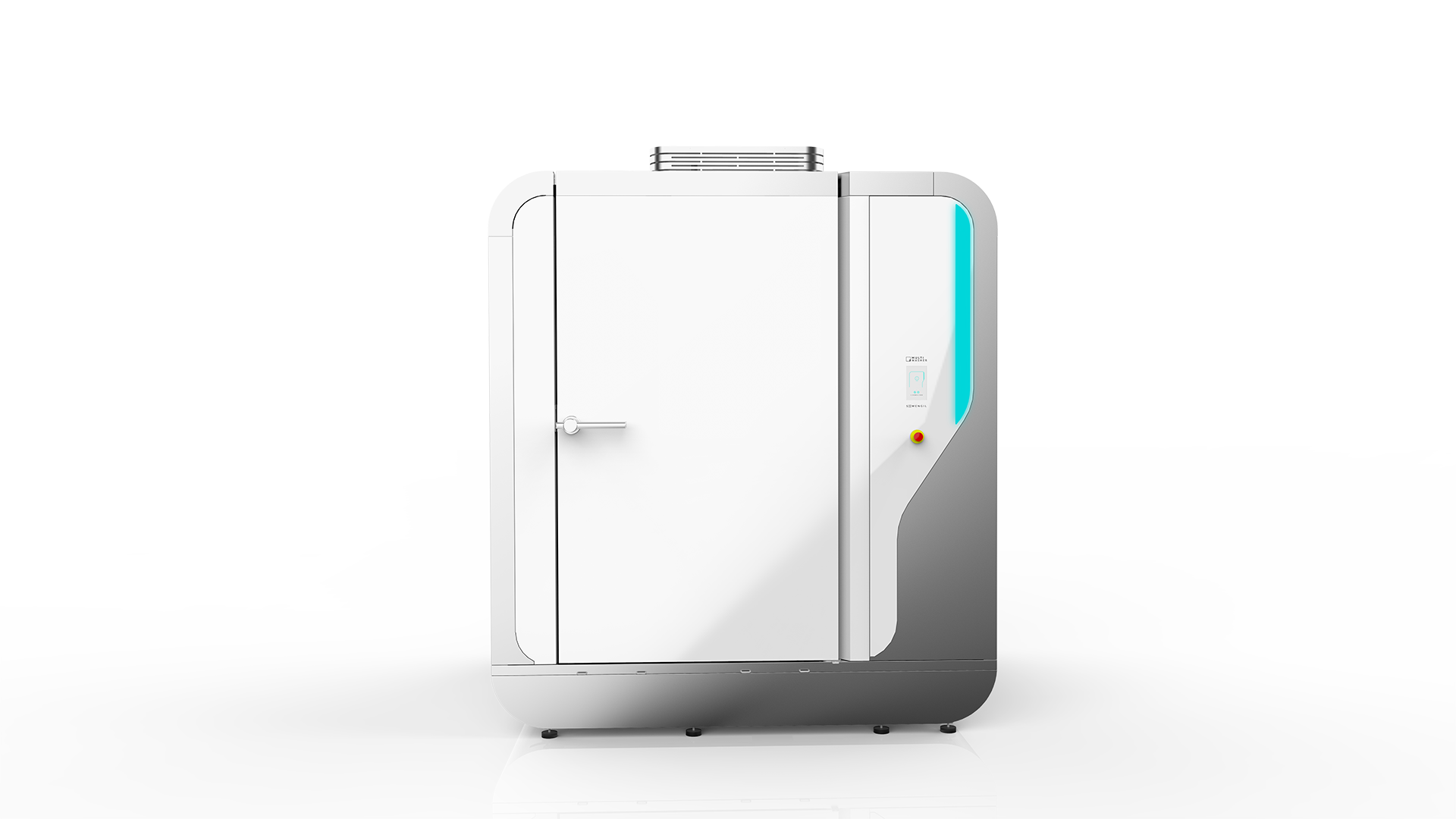
 Português
Português English (UK)
English (UK) English (USA)
English (USA) Français
Français Español
Español Deutsch
Deutsch